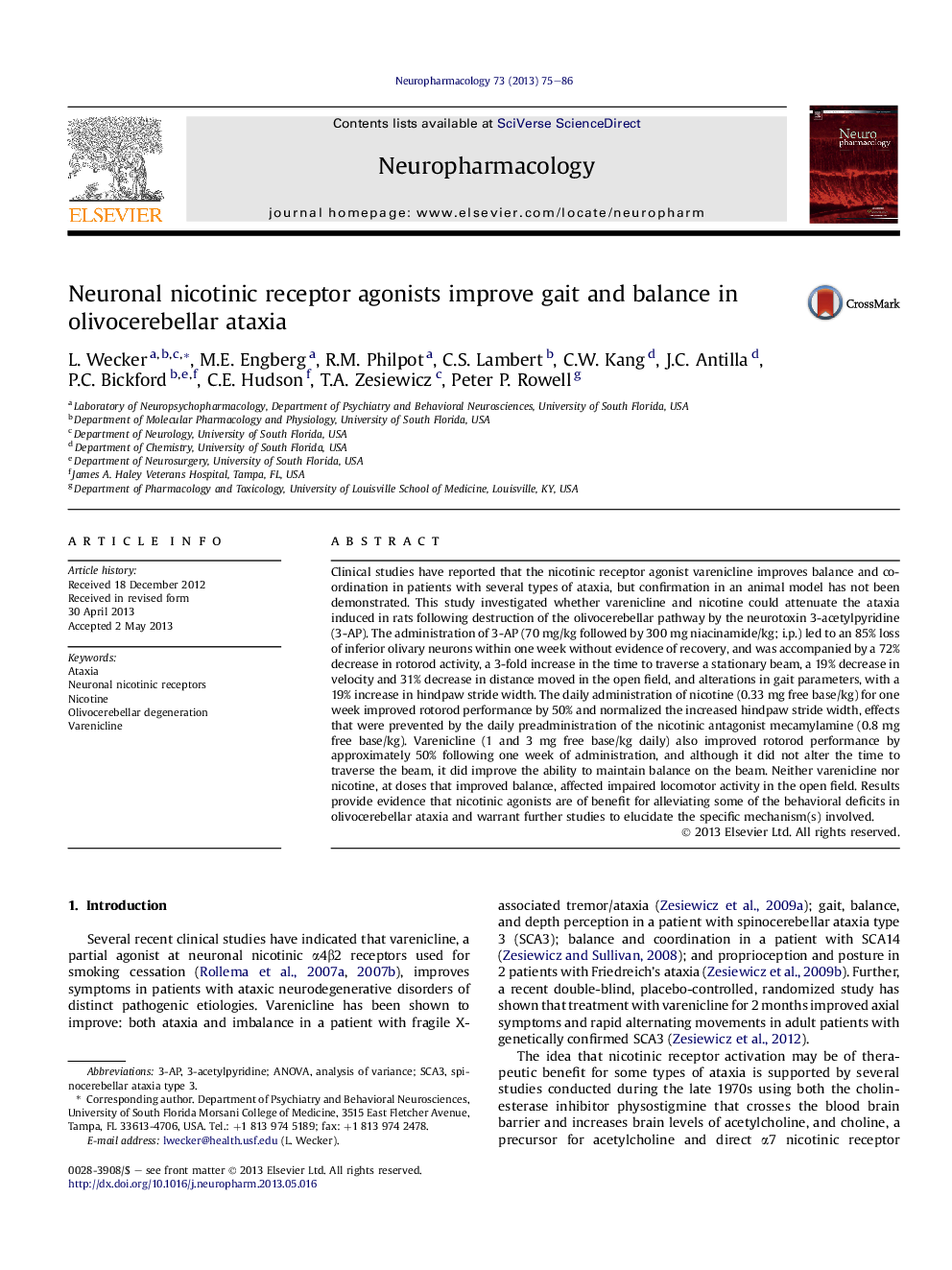| Article ID | Journal | Published Year | Pages | File Type |
|---|---|---|---|---|
| 5814926 | Neuropharmacology | 2013 | 12 Pages |
Abstract
Clinical studies have reported that the nicotinic receptor agonist varenicline improves balance and coordination in patients with several types of ataxia, but confirmation in an animal model has not been demonstrated. This study investigated whether varenicline and nicotine could attenuate the ataxia induced in rats following destruction of the olivocerebellar pathway by the neurotoxin 3-acetylpyridine (3-AP). The administration of 3-AP (70Â mg/kg followed by 300Â mg niacinamide/kg; i.p.) led to an 85% loss of inferior olivary neurons within one week without evidence of recovery, and was accompanied by a 72% decrease in rotorod activity, a 3-fold increase in the time to traverse a stationary beam, a 19% decrease in velocity and 31% decrease in distance moved in the open field, and alterations in gait parameters, with a 19% increase in hindpaw stride width. The daily administration of nicotine (0.33Â mg free base/kg) for one week improved rotorod performance by 50% and normalized the increased hindpaw stride width, effects that were prevented by the daily preadministration of the nicotinic antagonist mecamylamine (0.8Â mg free base/kg). Varenicline (1 and 3Â mg free base/kg daily) also improved rotorod performance by approximately 50% following one week of administration, and although it did not alter the time to traverse the beam, it did improve the ability to maintain balance on the beam. Neither varenicline nor nicotine, at doses that improved balance, affected impaired locomotor activity in the open field. Results provide evidence that nicotinic agonists are of benefit for alleviating some of the behavioral deficits in olivocerebellar ataxia and warrant further studies to elucidate the specific mechanism(s) involved.
Keywords
Related Topics
Life Sciences
Neuroscience
Behavioral Neuroscience
Authors
L. Wecker, M.E. Engberg, R.M. Philpot, C.S. Lambert, C.W. Kang, J.C. Antilla, P.C. Bickford, C.E. Hudson, T.A. Zesiewicz, Peter P. Rowell,
